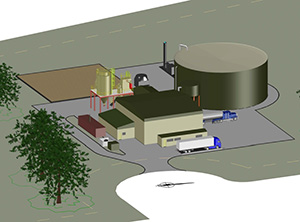
A story in today’s Providence Journal would seem to confirm that Rhode Island is indeed an unfriendly place to do business. But wait. A story on EcoRI.org today would seem to confirm that, contrary to the popular narrative, Rhode Island is indeed a friendly place to do business.
One story is about a pharmecutical company and the other story about making energy from food waste. Is it possible both narratives are true, and that this is a good thing?
According to the Providence Journal story, it took the drug company 7 months and $100,000 to apply for a license to have an employee administer pain medicine into an internal pump surgically located in the body of a patient with multiple sclerosis. This might not be a terrible thing to regulate, especially given that the company in question gets bought and sold by private equity firms more often than it invents new products. I’m concerned with how each new owner increases the profitability of this product.
I’m also concerned that a medical procedure for an active patient took more than 7 months to approve. Why? (the story doesn’t say). I do hope Rep. McNamara, who seems most concerned with how the business was treated by the state, also asks for a decision to be expedited for the patient’s sake (ie the consumer).
I’m also interested in why it cost so much money. According to the ProJo story, Pentec, spend $1,000 a month on rent when it seems like it only needed a PO Box. Perhaps Pentec had overspent in other areas as well? Or maybe it is factoring in lobbying fees?
In any case, the EcoRI story painted a very different picture of state regulation. In this case, regulation helped bring a New Hampshire company to the Ocean State to make energy and fertilizer from food scraps.
At a Sept. 10 meeting with members of the House Committee on the Environment and Natural Resources and the North Kingstown Town Council, Callendrello credited the state’s fixed-price energy program, known as distributed generation, for making the project doable. In 2012, anaerobic digesters were added to the list of qualifying energy sources for the DG program.
Callendrello also noted that Rhode Island has a better regulatory environment than Florida and Texas, two states where NEO has biomass facilities. “I think, on balance, it’s probably a better permitting atmosphere,” Callendrello said.
On balance, these might both be instances of the system working.
* It’s well worth noting that the ProJo covered the biomass story on September 10.
